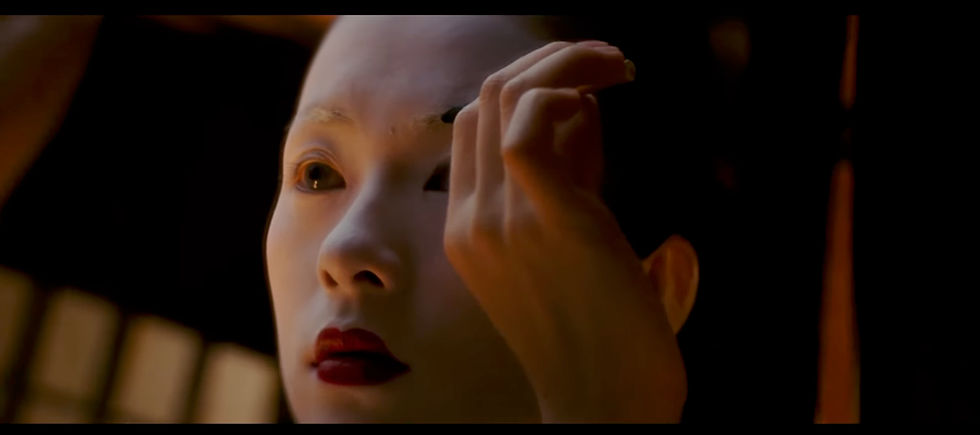FIGHT CLUB vs THE MATRIX: Which existence is better?
- Neelakshi Yadav

- Aug 15, 2019
- 4 min read
Updated: Jun 27, 2024
What if you don’t really exist? What if your life as you remember it are memories implanted by someone you don’t even know?
"Maybe our whole universe is a science experiment of some junior high-school student in another universe". – RAY KURZWEIL, Machine-Intelligence Guru, Google.
With two of the 1990's biggest blockbusters challenging our existence, we dig deeper to find out if the themes discussed in the movies can be really true for our lives.


When scientists and biologists create colonies of hamsters or smaller microorganisms, do the microorganisms know that their life has been artificially created? They are governed 24X7 and they cannot escape this existence. Will they ever realise that they have been put in place by some beings with ‘higher intellect’ and that they can be disposed-off any time if they are no longer needed?
What if, we too, are just an experiment?
However bizarre and unreal they may sound, these notions are not just theories, but are now highly explored concepts that have been researched upon by the some of the best physicists and psychologists of the world. Movieholics might be able to associate these theories with the popular 1999 gamechanger movies ‘Fight Club’ and ‘The Matrix’.
David Fincher’s psychological drama Fight Club and The Wachowskis’ science fiction/action film The Matrix are one of the few critically acclaimed movies that challenge our sense of existence. Fight Club is the story of the narrator who is discontented with his capitalistic and materialistic life which seems to have no purpose. This white-collared insomniac forms an underground fight club with Tyler Durden, a devil-may-care soap salesman to discover more of himself and life. The project soon spirals down into something sinister.
The Matrix trilogy describes a future where the reality perceived by humans is actually ‘The Matrix’, a simulated reality created by sentient machines in order to pacify and subdue humans while their bodies’ heat and electrical energy is used by the machines as an energy source. Upon learning this, Thomas or ‘Neo’ leads a rebellion against the machines.
Both the movies revolve around one basic concept, that the world is not what we think it is. The protagonists in both the movies are successful middle-class people leading average middle-class lives. As kids, they grow up hearing whatever the society tells them and they conform to the rules and notions of the society. Only as they grow up, do they start questioning their existence and suddenly realise that the world they are living in doesn’t feel right- they don’t know what they are truly living for.
Their disillusionment and dissatisfaction with life lead them to look for ways to attain freedom, as they start questioning their own presence. As the lines between the real anarchist world and the sham world blur, they find themselves casting aspersion on the purpose of their being, failing to find complete trust in either of their different-world alter egos. Both the movies revolve around the themes of identity crisis, obscure living and perverse belonging.
As mentally-stirring as spine-chilling as they are, the two blockbusters inform us of the inaccuracies within our own living. Trapped in a consumerist lifestyle, Tyler Durden rightly says in Fight Club “We buy things we don’t need with money we don’t have to impress people we don’t like. The things you own end up owning you.” The movie throws light on the fact that even though many of us feel that we have been held captive by the impositions of our mind, we struggle to off-centre ourselves from our comfort zones. Soon enough, we realise, in Morpheus’ words, “You are a slave, Neo. Like everyone else, you were born into bondage. Into a prison that you cannot taste or see or touch. A prison for your mind.”
er the past decade, there have been gargantuan developments in the field of artificial intelligence and augmented reality gaming. When the computer game ‘My SIMS’ was launched in the year 2000, it took the audiences by storm. Nick Bostrom, author of ‘Are you living in a computer simulation?’ (2003) defined ‘Simulation Hypothesis’ that proposes that all of reality is an artificial simulation, most likely a computer simulation. Elon Musk, the founder of SpaceX and co-founder of Tesla Inc quoted, "The strongest argument for us probably being in a simulation I think is the following: 40 years ago we had the game Pong – two rectangles and a dot. That's where we were. Now 40 years later we have photorealistic, 3D simulations with millions of people playing simultaneously and it's getting better every year. And soon we'll have virtual reality, we'll have augmented reality. If you assume any rate of improvement at all, then the games will become indistinguishable from reality, just indistinguishable."

No matter how thought-provoking or powerful they may seem, it is true that such theories feel good only in theory. The two films end on very positive notes though. The questions ‘how to free oneself from an impotent actuality?’ have been answered in different, yet equally intriguing ways. The answer in The Matrix is to ‘free your mind’ while Fight Club answers with ‘hitting the rock bottom’.
After all, in a Tyler Durden sense,
“This is your life and it is ending one moment at a time. It’s only after you’ve lost everything that you are free to do anything.”




Comments